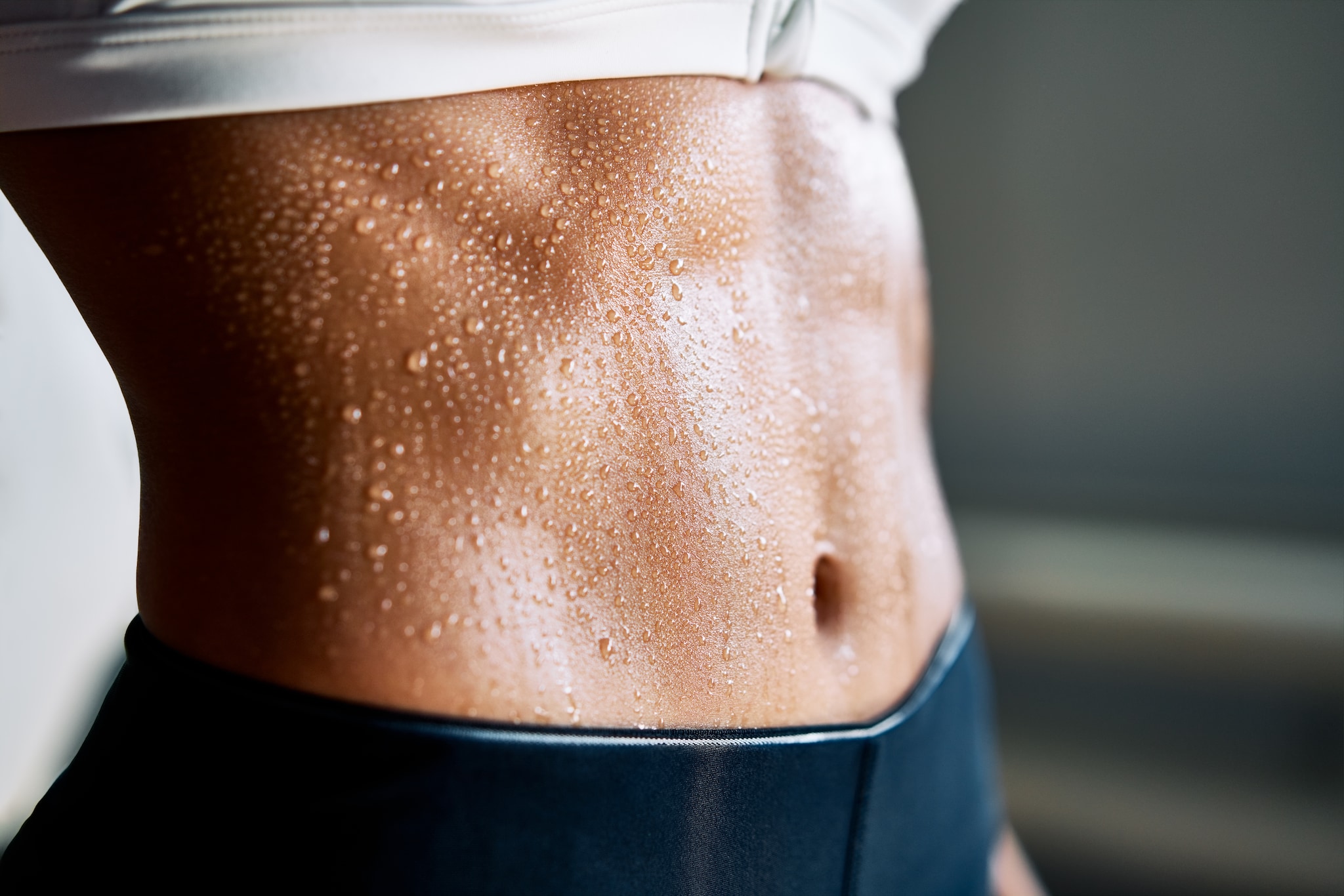Many people associate heavy sweating during exercise with burning fat and losing weight. After all, it feels like the more you sweat, the more pounds you must be shedding. But is this actually true? Does sweating help you lose weight, or is it just a temporary loss of water?
Let’s dive into what science says about sweating, its role in weight loss, and which methods actually work for sustainable fat loss.
Understanding What Sweating Really Does
Sweating is your body’s natural way of cooling down. When your body temperature rises—during exercise, hot weather, or a sauna session—your sweat glands release water and electrolytes onto your skin. As sweat evaporates, it helps lower your body temperature.
Here’s the key point: Sweating does not burn fat or calories directly. Any immediate weight you lose from sweating is mostly water weight, not fat. Once you rehydrate by drinking fluids, that lost weight will quickly return.
So while sweating might make you feel like you’re working hard, it’s not an accurate measure of how many calories you’re burning or how much fat you’re losing.
Why You May See Temporary Weight Loss After Sweating
After an intense workout or sitting in a sauna, you might notice a drop in the number on the scale. This is mainly due to fluid loss. For example, athletes can lose several pounds of water weight during competition, which they regain after rehydration.
This kind of short-term weight loss can be misleading. True fat loss requires creating a calorie deficit, not just sweating more.
Science-Backed Ways to Lose Weight Effectively
Instead of focusing on how much you sweat, it’s better to focus on methods proven by science to help you lose fat and maintain a healthy weight:
1. Regular Physical Activity
Exercise helps burn calories and increase your metabolism. Aim for:
-
Cardio workouts (running, cycling, swimming) to burn calories quickly.
-
Strength training to build muscle, which increases resting metabolic rate.
2. A Balanced, Calorie-Controlled Diet
What you eat has a bigger impact on weight loss than how much you sweat. Focus on:
-
Whole, nutrient-dense foods like vegetables, fruits, lean proteins, and whole grains.
-
Reducing added sugars, processed foods, and excessive fats.
-
Practicing portion control to maintain a calorie deficit.
3. Adequate Sleep
Lack of sleep disrupts hormones like ghrelin and leptin, which control hunger and appetite. Getting 7–9 hours of quality sleep each night supports weight loss efforts.
4. Staying Hydrated
Drinking enough water keeps your metabolism running efficiently and helps prevent overeating, as thirst is often mistaken for hunger.
5. Tracking Progress
Using a food journal, fitness app, or professional guidance can help you stay accountable and adjust your habits based on results.
Frequently Asked Questions About Sweating and Weight Loss
1. Does sweating mean I’m burning fat?
No. Sweating is just your body’s way to cool down. You can burn calories without sweating, and you can sweat without burning significant calories.
2. Why do I weigh less after sweating a lot?
The weight loss you see after heavy sweating is mainly water weight, which comes back once you rehydrate.
3. Do sauna sessions help me lose real weight?
Saunas may make you lose temporary water weight, but they do not burn fat. They should not be used as a weight loss method.
4. Can I lose weight without sweating much?
Yes. For example, swimming in cool water or doing light strength training may not cause heavy sweating, but they still burn calories and promote fat loss.
5. How can I measure real fat loss?
Track body measurements, body fat percentage, and how your clothes fit. The scale alone can be misleading because of water fluctuations.
Does Sweating Help You Lose Weight?
While sweating may lead to temporary water weight loss, it does not directly burn fat or cause long-term weight loss. You can sweat a lot without burning many calories (like in a sauna) or burn many calories without sweating much (like swimming in cool water).
Real, lasting weight loss comes from creating a calorie deficit through consistent exercise, a healthy diet, proper sleep, and hydration—not from trying to sweat more.
If your goal is to slim down, stop measuring your success by how sweaty you get. Instead, focus on building sustainable habits that support fat loss and overall well-being. Sweating is just your body’s cooling system—it’s not a shortcut to weight loss.
By understanding this, you can set realistic expectations and achieve healthy, lasting results without relying on quick fixes or myths about sweating and weight loss.

 Vietnamese
Vietnamese

Nguyen Hoai Thanh
Nguyen Hoai Thanh is the Founder and CEO of Metaconex. With 12 years of experience in developing websites, applications and digital media, Nguyen Hoai Thanh has many stories and experiences of success to share.